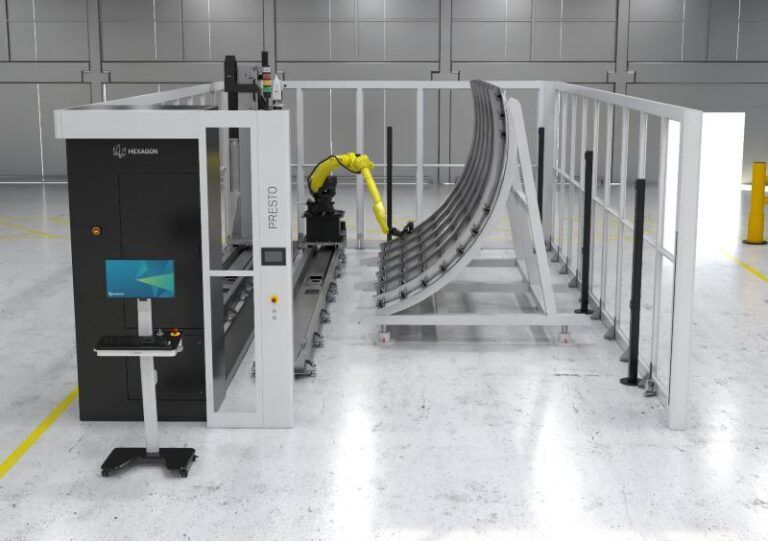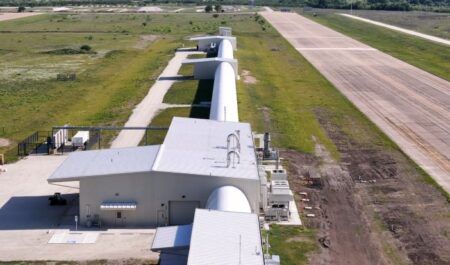Hexagon has launched an XL size of its Presto automated inspection system for use in the aerospace sector.
The Presto XL robotic cell is tailored to inspecting large aerospace components and is 10 x 7.5m (32 x 24ft) in size. It uses two mobile trackers and two mobile scanners and can accommodate parts up to 6m (20ft) long.
The system complements manual and CMM inspection processes and is suitable for inspecting major aerostructure components including fuselage panels, doors, and wing ribs.
Presto uses Hexagon’s blue line 3D laser scanning and absolute positioning technologies. The systems can be reprogrammed to inspect different models and components within hours by a single metrologist, without extensive robotic programming knowledge.
In addition, they can rapidly scan high volumes of large parts, including reflective surfaces in variable near-line lighting conditions, with short cycle times. The systems are available in a series of standardized, scalable units and were initially designed to address the varying size requirements and inspection needs of mass-production automotive manufacturers.
According to Hexagon, aerospace manufacturers can quickly implement Presto without extensive customization or setup time and it can also be used in MROs, where a technician with no metrology expertise can safely load and inspect parts such as engine blades quickly, without manual setup and calibration processes.
Aziz Tahiri, vice president global aerospace and defence at Hexagon said, “Typically for this type of project it would be a bespoke solution that would take 36 weeks to deliver. Presto can be deployed in just 16 weeks.
“Once setup, inspections can run overnight, so you do not have to keep people in the factory but can still operate 24/7”.
A report published by Hexagon earlier this year report talked to managers at 500 companies about manufacturing and revealed companies understood the benefits of automation but that barriers exist around data handling and skills.
The aerospace industry is also under pressure to increase output, with demand pushing global aircraft production to increase by 20% per year from now until 2027. Airbus A320 production alone is planned to ramp up from 48 aircraft per month in 2023 to 75 aircraft per month by 2026.
Tahiri said, “We have taken our metrology and manufacturing expertise and built Presto from the bottom up to give experienced quality teams what they need to automate inspection processes in a single cell, that can be deployed quickly to ramp up production and bring down the cost of quality inspection.





